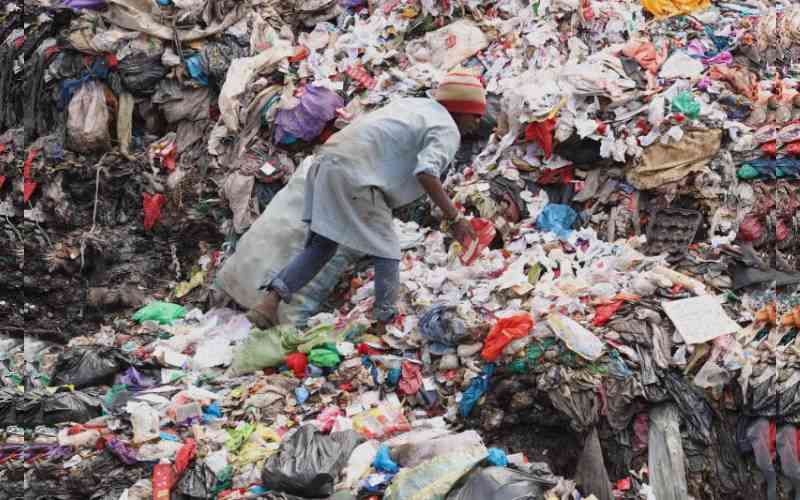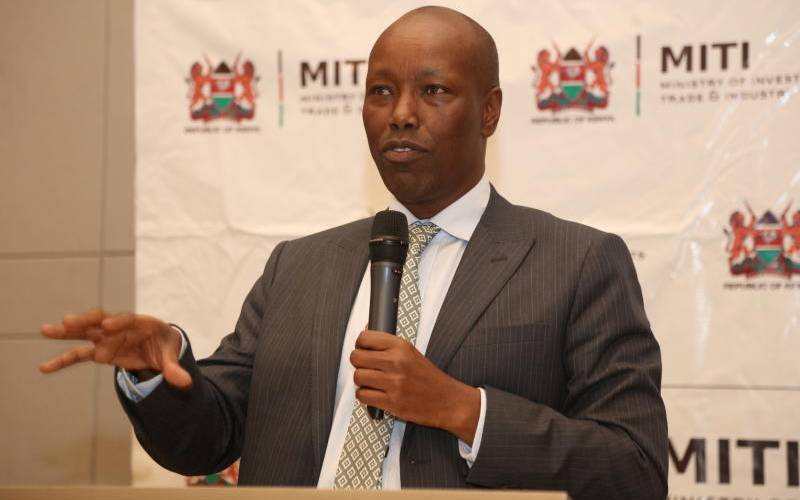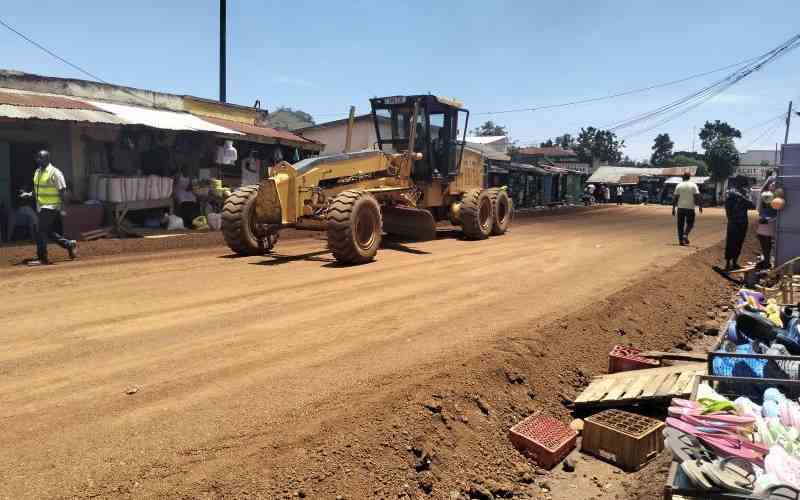A man rummages through heap of trash to seek daily bread comprising of used papers, plastic bottles and metals along the banks of river Nairobi near Majengo slums in Nairobi on May 17,2022. Lack of jobs in the country is pushing youth to engage in less dignifying activities to earn a living. [FILE, Standard]
×
The Standard e-Paper
Kenya's Bold Newspaper






